This month, on November 20th, we observe Transgender Day of Remembrance (TDOR), a nationwide annual vigil to honor and celebrate the lives of those lost to transphobic violence. TDOR was started in 1999 by transgender advocate Gwendolyn Ann Smith, to honor trans woman Rita Hester, who was killed in 1998. Nationwide, vigils are held to commemorate all the lives lost to anti-transgender hate crimes since Rita’s death, as well as those that were lost before.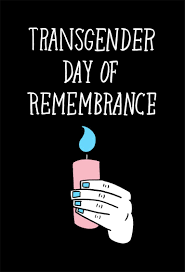
In the words of the TDOR founder “The Transgender Day of Remembrance seeks to highlight the losses we face due to anti-transgender bigotry and violence. I am no stranger to the need to fight for our rights, and the right to simply exist is first and foremost. With so many seeking to erase transgender people — sometimes in the most brutal ways possible — it is vitally important that those we lose are remembered, and that we continue to fight for justice.”
Additionally, during the week of November 12-19, people and organizations around the country participate in Transgender Awareness Week to help raise the visibility of transgender people and address the issues trans people face.
Four candlelight vigils are being held around Seattle on November 17th and 20th, one of which is being held right here at Seattle Central at 5:30pm on the 20th. I have provided the details of these TDOR events below this article, with links to the events page of each event embedded in the titles. Please participate and help spread the word!
With our current administration repealing the efforts of the Obama administration to curtail trans discrimination, denying passports and enacting new policies that effectively remove the trans-identified from existence, the trans community is at greater risk of attack -and death- than ever before (for more in-depth information on these policy changes, go here). Those who strongly oppose the concept of trans people -and decry their very existence- are much more likely to act upon their prejudice with violence, feeling that they have been given permission to do so by those in power.
The LGBT community has long been subjected to abuse, violent attacks and even murder by those who hate them, and trans-identified people are arguably the most affected. There are as many as 25 million transgender people throughout the world. The active persecution of the trans community has been a reality for decades, both in the U.S. and abroad. Brazil tops all other industrialized nations with its LGBT death toll by a very large margin. In 2016, 144 murders of trans people were reported in Brazil, more than double that of 2008 reports. In 2017, at least 445 people died on Brazilian soil as victims of LGBT hate crimes and trans-and-homophobia, an all-time high.
As reported by transrespect.org, “between January 1st, 2008 and September 30th, 2018, 2,982 murders of trans and gender-diverse people were registered worldwide.” That averages to about 300 per year, and the yearly total since 2016 has increased with each consecutive year.
According to the Human Rights Campaign (HRC), the United States has had the second greatest number of transgender murders since 2015 with over 20 each year, with those numbers increasing slightly each year. In 2017, at least 29 trans people were killed in the United States alone, the most recorded in at least a decade, with over 325 known transgender/gender-nonconforming hate-based homicides worldwide. As of September 30th, the global total of trans murders for 2018 is 369. Many of these deaths are horrific, with causes of death including being burned to death, dismembered while alive, and being violently sexually assaulted with weapons which were then used to shoot them to death from within their lower orifices. It may sound like the most twisted horror movie you’ve ever heard of, but this is the appalling reality of the violence facing many trans people.

2018 has already seen at least 23 killings of trans people in the U.S. (not all murders of trans folk have been properly reported), with that number expected to increase before the year is out. Unfortunately, the gruesome murders attributed to hate crimes against trans people often go unnoticed by the general public. Media coverage is lackluster at best, and at worst avoidant to report these murders honestly -as hate crimes against trans people. Too often, the media chooses to mis-gender them in their reports, and either minimize or completely dismiss the hate component of the crime. Many transgender victims of homicide are never even reported as such to authorities, because their families choose to mis-gender them. Many of these violent attacks are not documented by police as hate crimes either, due to prejudice. Some of the known murders have even been perpetrated by officers of the law. There is also no accounting for those who have been viciously attacked but survived. According to the 2015 U.S. Transgender Survey, 47% of transgender people will also be sexually assaulted at some point in their lives.
According to a 2017 report, 86% of the victims of the 102 trans murders between 2013 and 2017 were Black, Hispanic, or Native American. Of the 22 known deaths of trans victims so far this year, 90% of them were minorities. “These deaths are a very clear example of the toxic combination of multiple prejudices and the risk for those living in this country who live at the intersection of multiple marginalized identities,” said Sarah McBride, national press secretary for the Human Rights Campaign. When these multiplicities of hate-filled human prejudice find a single victim to focus on, the worst-case scenario is of high probability.
Suicide rates amongst the trans-identified are also disproportionately high. Of the 445 Brazilian deaths in 2017 mentioned above, 58 of them were suicides. According to Reuters Health, the results of a study conducted by the University of Arizona at Tucson showed that as many as 50% of trans-identifying teens have attempted suicide (compared to roughly 18% amongst CISgendered youth), largely due to a serious lack of social support and high levels of persecution.
Russell Toomey, the lead researcher conducting the study, had this to say about their findings: “For transgender youth, we know, for example, that peer, school, community, and family-based rejection, discrimination, and victimization are associated with greater risk for suicidal behaviors. Transgender youth might respond to these experiences by internalizing this rejection (e.g., shame), feeling like a burden to others, or perceiving that they do not belong.”
The trans-identified are also disproportionately affected by homelessness, housing discrimination and poverty, due largely to family rejection, discrimination and violence. It is estimated that as much as 40% of the 1.6 million homeless youth population identify as transgender or genderqueer. 20% of transgender people have been discriminated against for housing, and 10% have been evicted because of their gender identity. According to the National Center for Transgender Equality, “strong, explicit legal protection from gender identity discrimination, including at the state and local levels, is still needed.”
Mental health and addiction problems are also central struggles of the trans community, with rates considerably higher than those seen in both their LGBT and straight peers. Minority stress, devastating levels of discrimination and harassment, physical and verbal abuse, and a lack of social and familial support all contribute to the third of the trans population that suffers from addiction, and the nearly half that suffer from depression and anxiety.
With all of this in mind, the trans community needs outspoken, visible allies to show up in support of them and their value as human beings. Because all lives matter, and no one deserves to die for simply existing.
I am not transgender, but I AM a human being who believes that all lives matter and people should be accepted for, and supported in, being their most authentic selves. No one deserves to be persecuted or killed just because they are perceived as different.
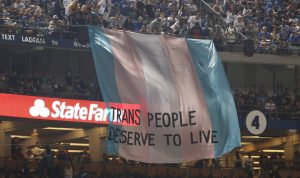
Even if you don’t personally know anyone who is transgender, getting to witness the joy, bravery, pain and struggle of the trans community through their stories and their losses is an important step towards healing and understanding. If you are unable to participate, and you happen to think about it, please light a candle and send out blessings, love and light to those we’ve lost to transphobia, and to the entire trans community still fighting for acceptance and equality. Until there is an end to hate, the trans community needs our love and support.
#WontBeErased #TransPeopleArePeople #StopTheViolence #FightTheHate
Please visit transgenderdor.org and tdor.info for more information.
-
LOCAL TDOR EVENTS:
-
St. Hilda & St. Patrick Episcopal Church
- Hosted by Christine Cummings & Robin Peterson, with special guest speaker The Rev. Carla Robinson
- Saturday, November 17th, 2018
- 7pm to 9pm
- 15224 52nd Ave. W., Edmonds, WA, 98026
-
Seattle Central College
- Hosted by the Sisters Of The Mother House Of Washington, Seattle Central, and Spectrum Club SCC
- Tuesday, November 20th, 2018
- 5:30pm to 7:30pm
- Seattle Central College – Room 1110, Broadway Edison Building, First Floor, Lower Level, Broadway Side
- 1701 Broadway, Seattle, WA, 98122
-
Trinity Community Church
- Hosted by Ingersoll Gender Center and UTOPIA Seattle
- Tuesday, November 20th, 2018
- 7pm to 9pm
- 3807 Reith Rd., Kent, WA, 98032
-
Langston Hughes Performing Arts Institute
- Hosted by Mac McGregor, Kshama Sawant, and Socialist Alternative Seattle
- Tuesday, November 20th, 2018
- 5:30pm to 9pm
- 104 17th Ave S., Seattle, Washington 98144
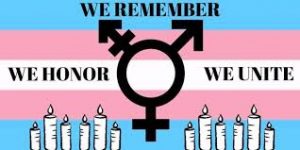

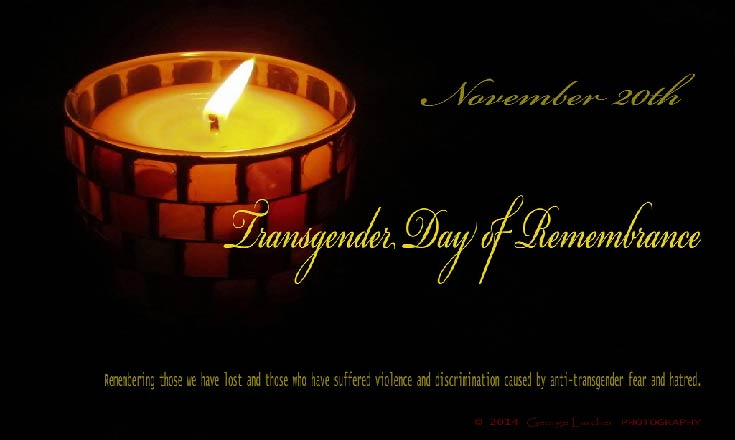

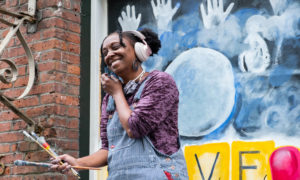


Comments are closed.